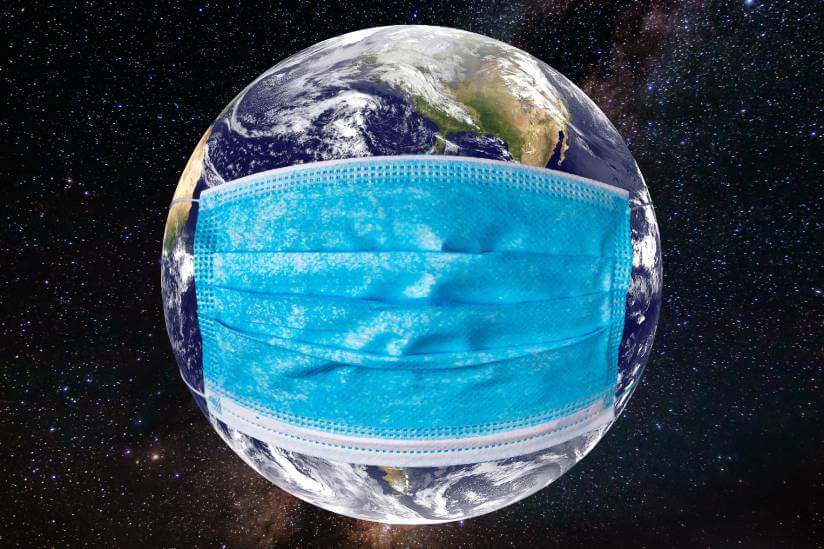COVID-19 impact on working holidaymakers in Canada
The COVID-19 outbreak has had a significant impact both on the Canadian economy and workers across Canada.
Canada has closed its borders and restricted entry for anyone who is not a Canadian citizen (or permanent resident), with a few exceptions for diplomats and US citizens.
Travelling to Canada during the COVID-19 pandemic
Who can enter Canada during the pandemic?
- Permanent residents
- Canadian citizens
- Immediate family of permanent residents and Canadian citizens
You may also be able to enter Canada if you are part of one of the following groups. However, you should contact the Canadian government before you book your trip.
- Temporary foreign workers
- Permanent resident applicants who were approved for permanent residency before the restrictions, but who had not yet travelled to Canada
- International students who have a valid study permit or who had been approved for a study permit before the restrictions.
Participants in the International Experience Canada (IEC) program (including the Working Holiday Program) are not eligible to travel to Canada to activate their work permits at present.
However, IEC participants who have already activated their work permits may be able to re-enter Canada but will require confirmation from the authorities in Canada before travelling.
Everyone who enters Canada is required to self-isolate for 14 days.
If you are a temporary resident in Canada, you may need to extend your visa status. In order to do so, you must follow the IRCC guidelines.
Canada is still processing immigration applications, however, delays are expected.

Unemployment support for working holidaymakers in Canada
COVID-19 is having a huge impact on the Canadian economy, and many sectors are being hit hard. Thousands of workers in Canada – including countless working holidaymakers – have either lost their jobs or are unable to work due to self-isolation and social distancing.
In response, the Canadian government has adapted its Employment Insurance (EI) scheme – a program which is designed to support individuals who have recently lost their job with temporary financial insurance.
Under the new changes introduced by the government, working holidaymakers will now be able to benefit from EI.
If you are eligible for EI you will be entitled to claim 55% of your income, up to a maximum of $573 per week.
Register for your WHC Jobs Kit for lists of the top ski resort employers in BC and Alberta, our working holiday jobs search tool and much more!
Who can apply for Employment Insurance Scheme (EI)?
To be eligible for this support, you must have paid into the EI program and accumulated 600 hours of work in the 52 weeks before you were unable to work. You can also qualify if your earnings have decreased by more than 40% for at least a week.
Due to the pandemic, the Canadian government has also waived the usual requirement of waiting one full week without pay due before you receive the benefit.
How to apply for Employment Insurance (EI)?
It’s important to apply as soon as possible after you stop working. If you wait more than 4 weeks, you may lose benefits. You can apply directly with the Canadian government by completing an online form. If you are unable to work, you can apply for up to 15 weeks of financial assistance.
Canada Emergency Response Benefit
Alternatively, workers who are not eligible for EI may be entitled to claim Canada Emergency Response Benefit (CERB).
CERB is the Emergency Care Benefit and Emergency Support Benefit merged into one. The payment provides support for individuals and families and includes benefits such as the child care benefit, mortgage support and more.
How to apply for CERB?
If you have applied for EI, you do not have to apply for CERB, as it will be automatically applied to you if you fit the conditions.
Canadian Tax Deadline Extension
The Canadian government has also announced an extension of tax filing deadlines for certain taxpayers.
The deadline to file a 2019 personal income tax return is extended from 30 April to 1 June. For self-employed individuals, the deadline has been extended from 30 April to 1 September.
While the tax filing deadline has been extended, Taxback.com recommends that you file your tax return as soon as possible in order to receive your tax refund without delay.
Their team can take care of all the tricky tax paperwork and guarantee to transfer your maximum legal tax refund to your bank account. What’s more, their Live Chat team can answer your tax questions anytime 24/7.
Want to claim a tax refund from Canada?






